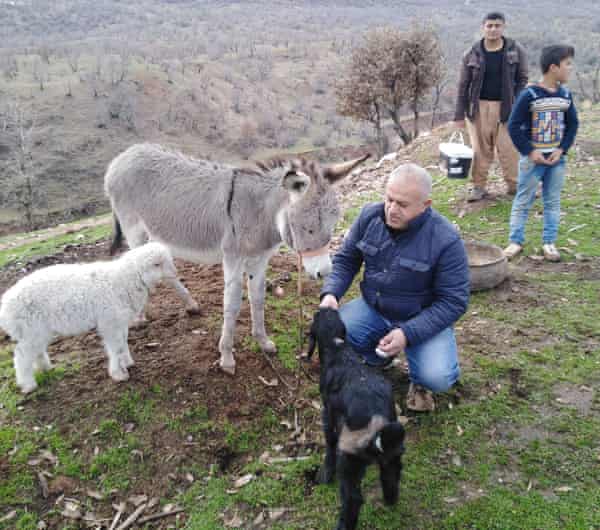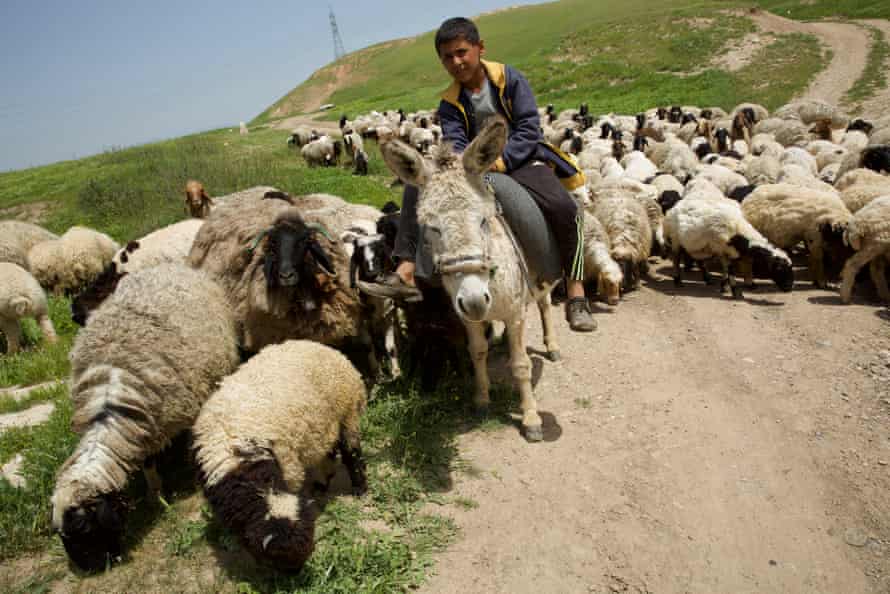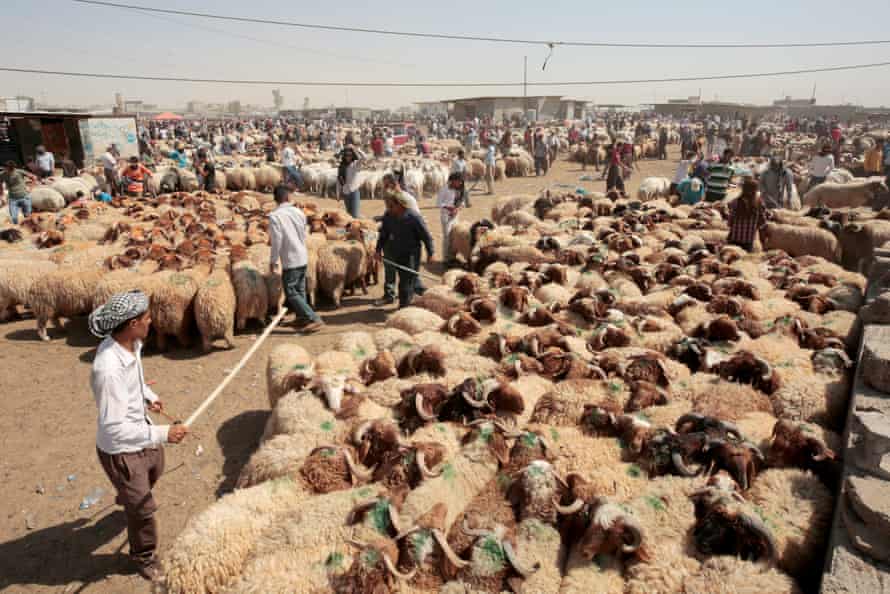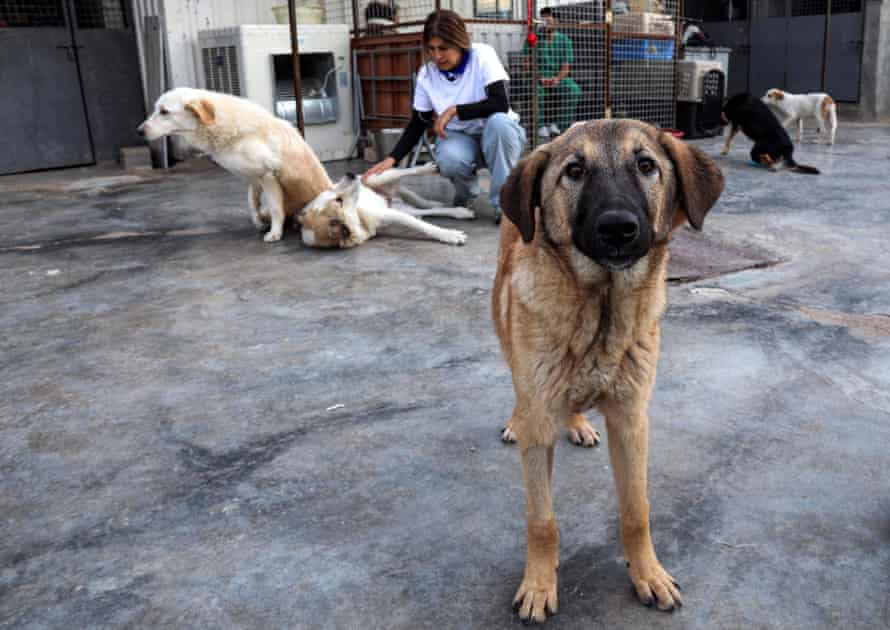“The animals are my life,” says Sulaiman Tameer. In one corner of his desk is a statuette of a rearing horse. A watercolour of a donkey hangs behind it. “That one lives with a government minister,” he nods at a photo of a rescued kitten. “But I won’t tell you which one.”
The veterinarian’s office, which shares space with his clinic on a sidestreet in Duhok in the Kurdistan region, in northern Iraq, is where Tameer divides his time between treating animals and campaigning for government action on their rights.

The son of a farmer, Tameer fled Saddam Hussein’s regime as a young man by riding a donkey over the mountains into Turkey. After graduating from veterinary school he decided to give back to the animals that he felt had saved him.
He began veterinary work in the early 1990s and became well known locally as a civil society activist – he set up the Kurdistan Organization for Animal Rights Protection – before linking up with other international animal rights groups.
The autonomous Kurdistan region has no ban on dog fighting, no standards for slaughterhouses, and hunting for sport is simply a matter of choosing an imported rifle at a bazaar and driving to the mountains. Recent viral videos have shown dogs fighting to the death, the shooting of a wild boar at a mountain picnic, and an old man viciously stomping on a wayward goat.
Frustrated with the lack of government action, Tameer wrote a sweeping draft law to address failures in animal protection a decade ago. Despite years of lobbying in Kurdistan and Iraq, the draft bill failed to gain support from politicians. That changed, however, when a number of animal-loving cabinet ministers helped Tameer by lobbying colleagues to get the law considered by the justice ministry and Kurdish parliament, which is to debate and vote on it later this year.
Tameer has not given up on pushing for similar legislation for the whole of Iraq, but disarray in the federal government and elections later this year make this a bad time for further efforts.
The Kurdistan region has been effectively autonomous since 1992, but was not granted political recognition until 2005. The region’s autonomy is akin to that of the UK’s devolved countries, and so the animal rights law, if passed, would apply only locally.

The bill is grounded in Islam, similar legislation in the region and Europe, and the UK’s five freedoms relating to animal welfare: protection from hunger and thirst; discomfort; pain, injury or disease; the freedom to express normal behaviour, and freedom from fear and distress. Tameer sees these as extending to all animals: domestic, stray and farmed. He stresses that animal abuse is haram – a sin – in his religion.
“Islam affirms that it is not permissible to harm animals, and citizens must deal with animals gently, especially animals that do not pose a threat to the individual and society,” says Dr Abdulla Said Waisy of Kurdistan’s Union of Islamic Scholars, though he would not be drawn on committing full support, saying the union would need to review the final bill in detail.
Beef is a staple of Iraqi Kurds’ meals – many eat “grill” daily – and farmers rear goats and sheep, which are sometimes slaughtered and donated to poor families, or killed in religious festivals. The region is thought to be where sheep and goats were first domesticated about 8,000 years ago.
A wide range of poultry is also farmed and sold. In Erbil, Kurdistan’s crowded capital, tired white chickens are found in every neighbourhood, packed into streetside cages or in rooms at the backs of the kebab shops where they’ll be eaten.
Like his NGO, Tameer’s proposed animal rights law is a first for Iraq. It would establish a welfare council, chaired by Kurdistan’s prime minister, and responsible for recommendations and regulations. It would also license hunters, zoos, breeders and slaughterhouses and mandate fines for abuses.

The bill covers all aspects of an animal’s life, from breeding to care to slaughter or euthanasia; it criminalises subjecting a farm animal to unnecessary pain, including overwork, and sets standards for livestock transport. In a country where the mercury hits 50C (122F) at the start of summer, it’s common to see sheep hauled from countryside to abattoir in the back of a pickup, tied by their necks.
The bill would bring Iraq in line with the UK guidance that only healthy livestock be transported for slaughter, in a way to prevent injury or suffering, with sufficient water and rest.
The Kurdistan regional government (KRG) is eager to revitalise the agricultural sector. Amid crashing oil prices, loss of the oil region of Kirkuk to the central government in 2017, and Baghdad’s failure to transfer the region’s budget, the KRG encouraged government employees to return to the fields, aiming to cut both public spending and cheap imports from neighbouring Turkey and Iran.
A report in October 2019 found that production of sheep and goats had declined severely over the previous 20 years. A United Nations Development Programme study published that year concluded that the budget crisis had forced the KRG to cut veterinary vaccination programmes, reversing all recent animal health improvements. Fodder was also a concern: in the absence of silage or haylage, bags of cereal dust were sold as animal feed. And this year, water is scarce in the midst of an unexpected drought, risking the barley crop that makes up most livestock diets.
The financial squeeze also means many farmers see livestock welfare as an unaffordable luxury. Mustafa Shilani, who for several years reared chickens for their eggs and because he liked the birds, said a government mandate on the minimum size of enclosures, for example, would be untenable given the size of his garden.

In Kurdistan, all potential changes have detractors. “Why should we care about animals when people don’t have full rights?” is a frequent response. Some even oppose neutering stray dogs, viewed as severing from them something endowed by God.
Yet Tameer is confident people are ready for change. When he started campaigning, people sent photos of the severed heads of dogs they had killed to taunt him, but nearly 13 years later he says he is now part of a nascent network of animal welfare activists across Iraq.
There are 200,000 dogs in Kurdistan, says Renee Waters Savell, manager of Erbil Animal Shelter, home to 300 formerly stray or abused dogs, and ex-farm dogs.
“They aren’t going anywhere, and the old government-sanctioned tactic of poisoning or shooting them hasn’t worked. You don’t have to love them,” she says. “Just respect them.”
Sign up for the Animals farmed monthly update to get a roundup of the best farming and food stories across the world and keep up with our investigations. You can send us your stories and thoughts at animalsfarmed@theguardian.com